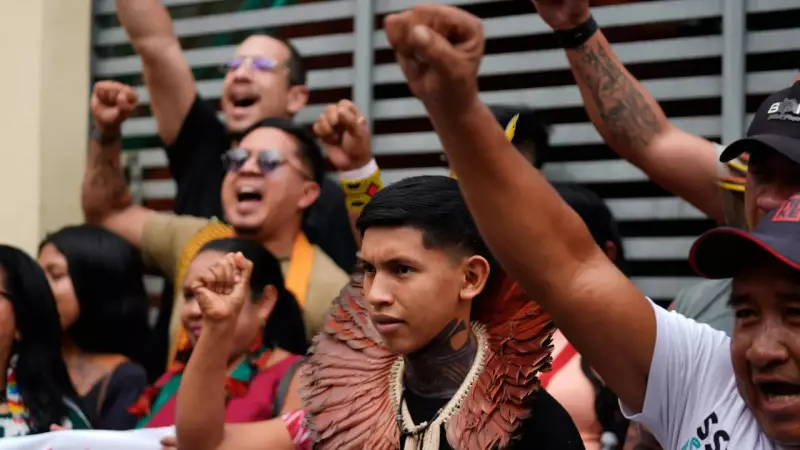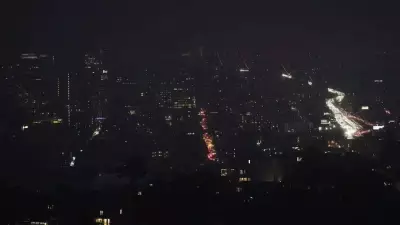
Tensions flared dramatically at the Cop30 climate conference in Belém, Brazil, on Tuesday evening when a group of Indigenous and non-Indigenous activists forcefully entered the main conference center, resulting in physical confrontations with security personnel.
Security Breach at Restricted Zone
Approximately 50 demonstrators, some adorned in traditional feathered headdresses, reportedly damaged a door before successfully breaching the entrance to the Blue Zone. This restricted area is specifically reserved for accredited delegates and requires passing through metal detectors. According to The Guardian's report, the protesters managed to bypass these security measures.
United Nations security personnel immediately intervened as the crowd entered the facility, triggering brief but intense physical confrontations and heated verbal exchanges. During the chaos, one protester dramatically unfurled a banner bearing the powerful message: "Our forests are not for sale." Other activists wore shirts displaying the word "Juntos" (meaning "Together" in Portuguese), symbolizing their unified stance.
Aftermath and Official Response
Security forces eventually succeeded in removing the entire group from the premises. A UN climate spokesperson confirmed that two security guards sustained minor injuries during the incident, while the facility suffered limited damage. As a precautionary measure, fire brigade officers established a security perimeter at the entrance afterward.
The identities of those involved in the protest remain unclear as investigations continue. The UN confirmed that combined Brazilian and UN security teams had successfully contained the situation and launched a formal investigation into the security breach.
Voices from the Ground
Juan Carlos Monterrey-Gómez, a climate negotiator from Panama who witnessed the incident firsthand, offered a telling remark: "At last, something has happened here." His comment reflects the simmering tensions that have characterized the conference.
Agustin Ocaña of the Global Youth Coalition provided crucial context, revealing that some protesters shouted, "They cannot decide for us without us," highlighting their profound frustration with what they perceive as inadequate Indigenous representation in climate decision-making processes. Ocaña further explained that tensions were fueled by grievances over funding priorities, particularly development spending in Belém that appears to come at the expense of essential community services.
Despite the dramatic incident, conference sessions continued without major disruption. This year's Brazilian-hosted Cop has notably encouraged civil society participation and public demonstrations. Indigenous groups and NGOs have maintained a strong presence throughout the event, serving as a counterbalance to corporate influence.
The conference schedule includes a series of side events in the coming days, including a people's summit and youth rally, ahead of a major demonstration planned for Saturday.





